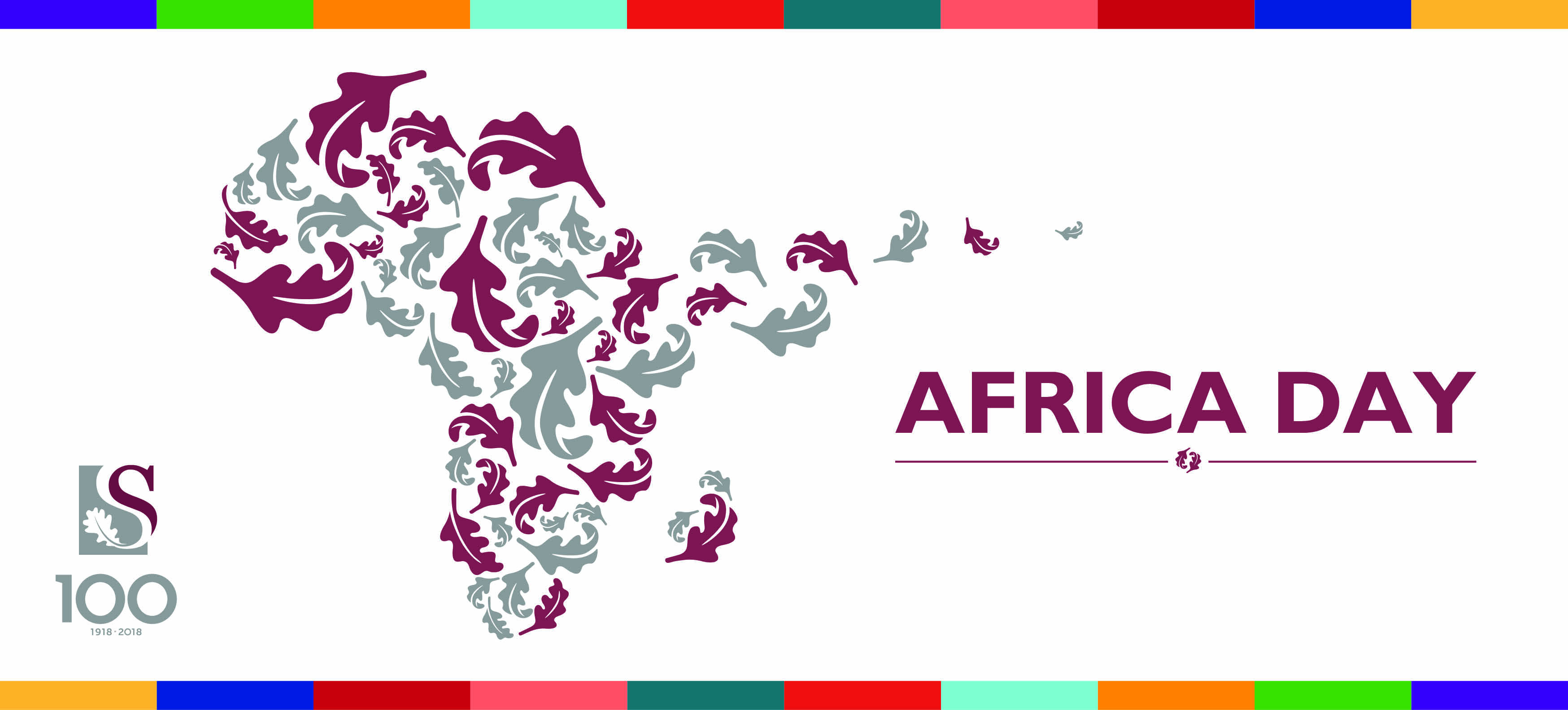
This year, Stellenbosch University (SU) celebrates Africa Day on 25 May 2020, with a message from Prof Hester Klopper, DVC Strategy and Internationalisation.
Africa Day 2020: Uniting Africa amid the COVID-19 pandemic
Each year, on 25 May, we celebrate Africa Day by foregrounding the successes of our people and fostering unity among the countries on our continent. The year 2020, however, we face many challenges amid a global health pandemic that also provides opportunities for success and unity. For the past few months, the COVID-19 pandemic has kept countries across the globe in a prolonged lockdown in an endeavour to curb the spread of the virus and thereby saving human lives. Although the epicentre of the virus has mostly been centred around China, Europe and North America, many are holding their breath contemplating the anticipated impact on Africa. But, there is a sense of community and that Africa can unite in its fight against the coronavirus pandemic.
The global response to COVID-19 has been unprecedented, with scientists from across the world contributing significantly to the body of evidence, international and national workgroups and structures to advise governments as they navigate uncharted waters. At Stellenbosch University (SU), the Division for Research Development has recorded more than 20 research initiatives specifically related to the COVID-19 pandemic. Much of our research activities in the field of COVID-19 has specifically been collaborations with other African universities to respond to the challenges currently facing the continent – not only around health-related aspects but also around societal issues. In celebrating Africa Day, we would like to highlight a few of SU's research projects addressing the COVID-19 pandemic in Africa, but you can also read more about our research collaborations across the continent. These are just some of the activities SU's academics are collaborating on with other partner institutions on the continent to respond to the COVID-19 pandemic.
The University's Centre for Complex Systems in Transition is undertaking a study where colleagues at both SU and the University of Botswana are collaborating to better understand the impact of COVID-19 on the education systems of both their universities. In the field of visual arts, we are exploring ways of investigating the online teaching experiences of educators during the lockdown at SU and the University of Ghana. SU's Division for Nephrology in the Faculty of Medicine and Health Science (FMHS) are collecting data on patients being treated for renal failure with chronic dialysis and transplantation and using the registry platform to capture data on COVID-19 in dialysis and transplant patients. Countries that are part of this initiative include South Africa, Ghana, Kenya, Zambia, Burundi and Botswana. Also, at the FHMS, the Division of Medical Virology is collaborating with the University of Yaounde 1 in Cameroon to better understand the role played by proinflammatory cytokines (the cytokine storm) and their involvement in downstream signalling pathways in COVID-19 disease. The measurement of these cytokines are crucial for a better understanding of the COVID-19 disease progression and for assessing immune and therapeutic responses.
One of SU's academics, Prof Kathryn Chu, was a panellist on a webinar co-hosted by University of Global Health Equity (Rwanda), InciSioN and Lifebox to discuss and provide solutions to COVID-19-related disruptions to surgical and anaesthesia training in sub-Saharan Africa, and how this compares to the global climate. At SU's Centre for Evidence-based Health Care alone, a number of COVID-19 initiatives have started, such as the COVID-19 Evidence Network to Support Decision-making (COVID-END) to find and use the best evidence to support the evidence-demand and to help reduce duplication in and better coordination of the evidence syntheses, technology assessment and guidelines being produced. In addition, to better understand the impact of COVID-19 on health care systems across the continent, Prof Lillian Dudley participated in a webinar co-hosted by the Consortium for Global Health (CUGH) and AfreHealth.
At SU, we host the secretariats for various thematic partnership in collaboration with other African Universities. At the Centre for Collaboration in Africa, the secretariats of PeriPeri-U in Disaster Risk Reduction and the AUDA-NEPAD Southern African Network of Water Centres of Excellence (SANWATCE) are coordinating efforts whereby partners are contributing in various national, regional and continental activities specifically related to the COVID-19 pandemic. For example, the partners at Makerere University in Uganda have been a part of the development team of the Coronavirus Resource Centre, a website established to help advance the understanding of the virus, informing the public and briefing policymakers in order to guide response, improve care, and save lives in Uganda. At Bahir Dar University in Ethiopia, colleagues have been working closely with the federal government to provide technical support and advice, contributing to community mobilisation for COVID-19 prevention, treatment and recovery operations action plan, and regional Emergency Operation Centre. Similarly, colleagues at the University of Antananarivo, Madagascar, have been working closely with the Ministry of Disaster Risk Management and Ministry of Population, Social Protection and Women Promotion in the country to advise on strategies and raising awareness about COVID-19 in Madagascar.
History will forever remember 2020 as the year of the COVID-19 pandemic. Although it has had an unprecedented impact on societies across the globe and has in many ways altered life as we know it, the pandemic has provided Stellenbosch University and our partners across Africa with opportunities to be innovative, effect change and contribute through research collaboration towards what has become known as the “new normal". As we celebrate Africa Day amid the devastating impact of a pandemic, let us focus on how we as a continent can unite in finding solutions that serve the unique challenges of Africa and make a contribution to our beloved continent's sustainability and to society at large.
As the father of our democracy, Nelson R. Mandela often stated … “It always seems impossible until it's done." Let's do this together!

